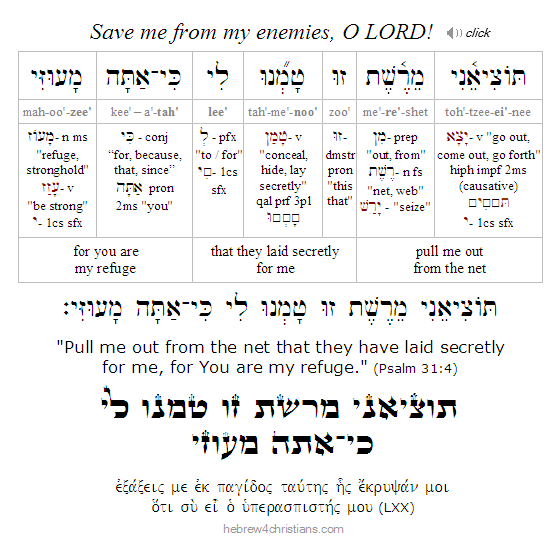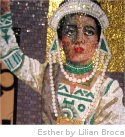|
Do you remember this scene from the Fiddler on the Roof? A young man named Labish approaches the dear and wise old Rabbi and asks him, "Is there a proper blessing for the Czar?" Everyone is astounded at the idea. A blessing for the czar? The gentle Rabbi responds that indeed there is indeed a proper blessing for the czar: "May God bless and keep the Czar -- far away from us!" (Amen!)
The holiday of Purim is one of the most joyful of the Jewish year. We remember that long ago, in the city of Shushan (in ancient Persia), a wicked political sycophant named Haman attempted to blame the Jews for being different and to initiate a pogram for their extermination. The Jews were saved through the intervention of a queen named Esther (Hadassah) and her cousin Mordechai, both of whom were providentially enabled by God to overturn the evil decree of the King of Persia (the story is told in the Book of Esther). Throughout the centuries, in various places, many others have likewise tried to destroy the Jewish people, but none has succeeded. ūóųĘūØ ūÖų┤ū®ų░ūéū©ųĖūÉųĄū£ ūŚųĘūÖ / am Yisrael chai: "The people of Israel live!" God's sovereign hand works all things together for good, even if at times things appear bleak and desperate (Rom. 8:28).
Hebrew Lesson
Psalm 31:4 reading (click for audio):
 |
The name Purim (ūżų╝ūĢų╝ū©ų┤ūÖūØ) refers to the "lots" (i.e., dice) that Haman and his magicians used to determine the "best day" to carry out their nefarious plan (there is a Hebrew irony regarding the word, however, as the root word "pur" (ūżų╝ūĢų╝ū©) also can refer to being "crushed" or "brought to nothing"). Haman's dice rolled "Adar 13," but since the Jews were delivered on the following day, the holiday is celebrated on the 14th of Adar. In other words, Adar 14 was ironically transformed from a day of potential tragedy and grief into a time of great rejoicing! (In Israel, Purim is observed a day later still (i.e., on Adar 15th) and is called Shushan Purim, since the deliverance of the Jews of Shushan did not occur until the 15th.) Among other things, the delicious irony of the Book of Esther reveals that there is no "chance" in God's universe, since He is the Master of the universe and supervises all it outcomes - including the "roll of the dice" (Prov. 16:33).
During the festive holiday of Purim it is customary to dress up in costume and listen to the Book of Esther (i.e., megillat Esther, ū×ų░ūÆų┤ū£ų╝ųĖū¬ ūÉųČūĪų░ū¬ų╝ųĄū©, or "the megillah") recited from the Hebrew scroll (before we hear the Megillah read, we recite three Purim blessings). Some people will dress as the noble Mordechai, others as the foolish king Ahashuerus, others as Esther, and so on. Part of the fun is that we are told that it's very important that we hear every word recited clearly, so we must keep very quiet as the story is being read. However, whenever we hear the name "Haman," we whirl groggers (ra'ashanim), blow whistles, stamp our feet, and make such a commotion that we can't hear his name. This is the only time we are encouraged to be boisterous when the Scriptures are being read.
After reading the Megillah, many communities put on their own "purimspiel" (Purim play) to reenact the dramatic story, with children dressed up as the characters of the play... Others put on "Purim puppet shows" at this time. It is a time of merrymaking and fun. Later we eat a festive meal (called a seudah, ūĪų░ūóų╗ūōų╝ųĖūö) and enjoy three-cornered pastries called oznei Haman (ūÉųĖū¢ų░ūĀųĄūÖ ūöųĖū×ųĖū¤), or "Haman's Ears," for dessert (legend says that Haman's ears were twisted and triangular in shape). In Yiddish, these are called a hamantaschen (ūöū×ū¤ųŠūśūÉųĘū®ū¤) and are often filled with prunes, chopped nuts, apricots, apples, cherries, chocolate, and so on. Eating Haman's Ears fit the delicious irony recounted in the Book of Esther....

It is a custom to send bags or baskets of hamantaschen, candy, and fruit to friends and family members at this time. This is called mishloach manot (ū×ų┤ū®ūüų░ū£ūĢų╣ūŚųĘ ū×ųĖūĀūĢų╣ū¬), the "sending of portions," and is intended to ensure that everyone has enough festive food for the festive Purim meal held later in the day. In addition, many families and communities collect food and toys for people in hospitals and nursing homes, while others give money to charities. This tzedakah (ū”ų░ūōųĖū¦ųĖūö) is called Mattanot La'evyonim (ū×ųĘū¬ų╝ųĖūĀūĢų╣ū¬ ū£ųĖūÉųČūæų░ūÖūĢų╣ūĀų┤ūÖūØ), "gifts for the poor," and is considered especially important at this time. (The ideas behind both manot and mattanot come from Esther 9:22).
On Purim we remember how the Jewish people escaped from Haman's evil plot to destroy them, though according to the sages, any day that is marked by special deliverance by God may be regarded as a "personal" or "special" Purim. Therefore some Jewish families and communities celebrate "special purims" to commemorate the anniversary of a particular deliverance. The most important deliverance we have comes from being set free from the guilt of our sins, of course, since this gives us true peace with God (Rom. 5:1). In fact, Yom Kippur (the Day of Atonement) is also known as Yom Kippurim in the Tanakh, which can be read as Yom Ke-Purim, a "day like Purim." Thus the day on which Yeshua sacrificed Himself on the cross is the greatest Purim of all, since through His loving intervention we are eternally delivered from the hands of our enemies. ūÖų░ūöų┤ūÖ ū®ūüųĄūØ ūÖų░ūöūĢųĖūö ū×ų░ūæū©ųĖūÜų░ / yehi shem Adonai mevorakh: "Blessed be the Name of the Lord."

|




